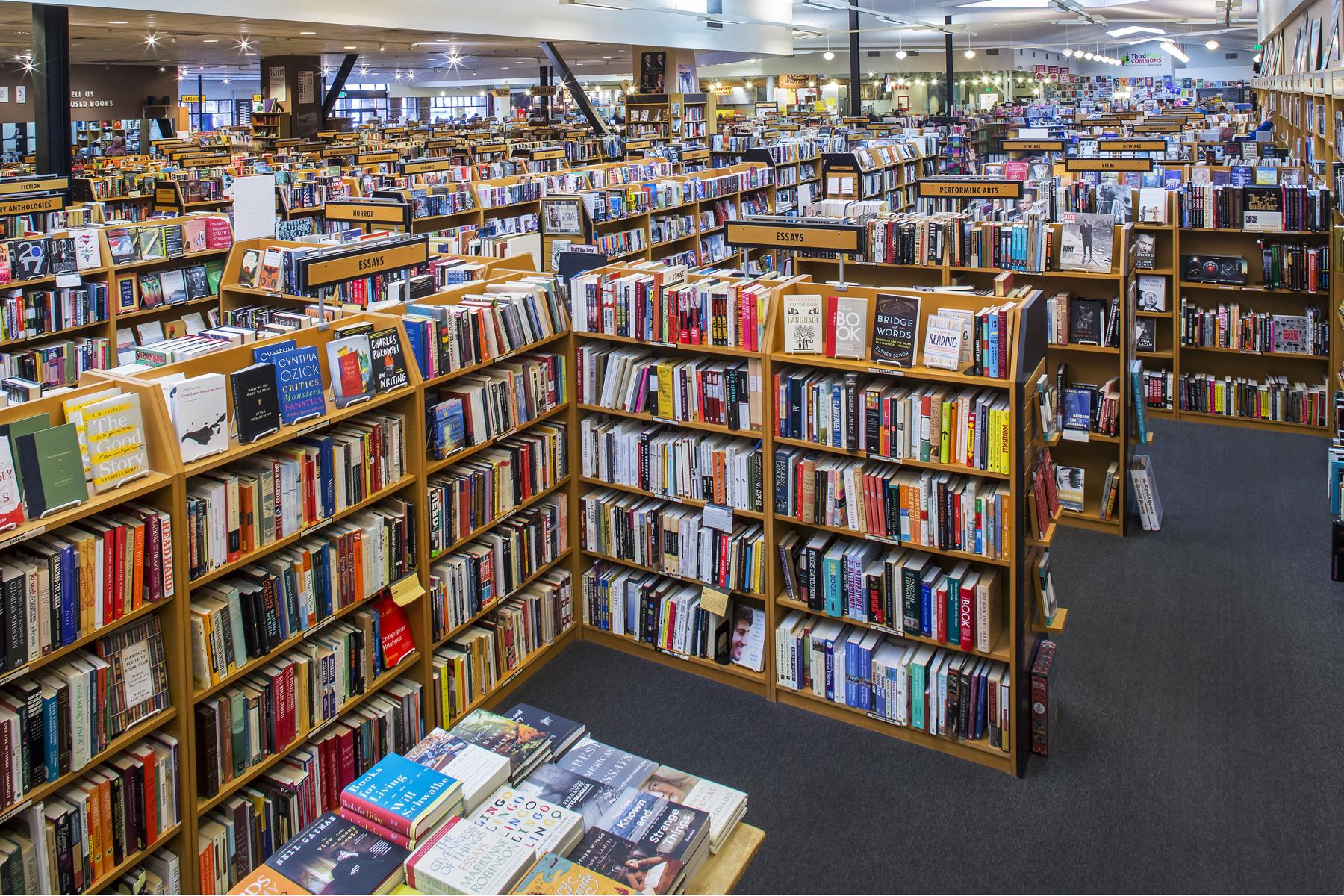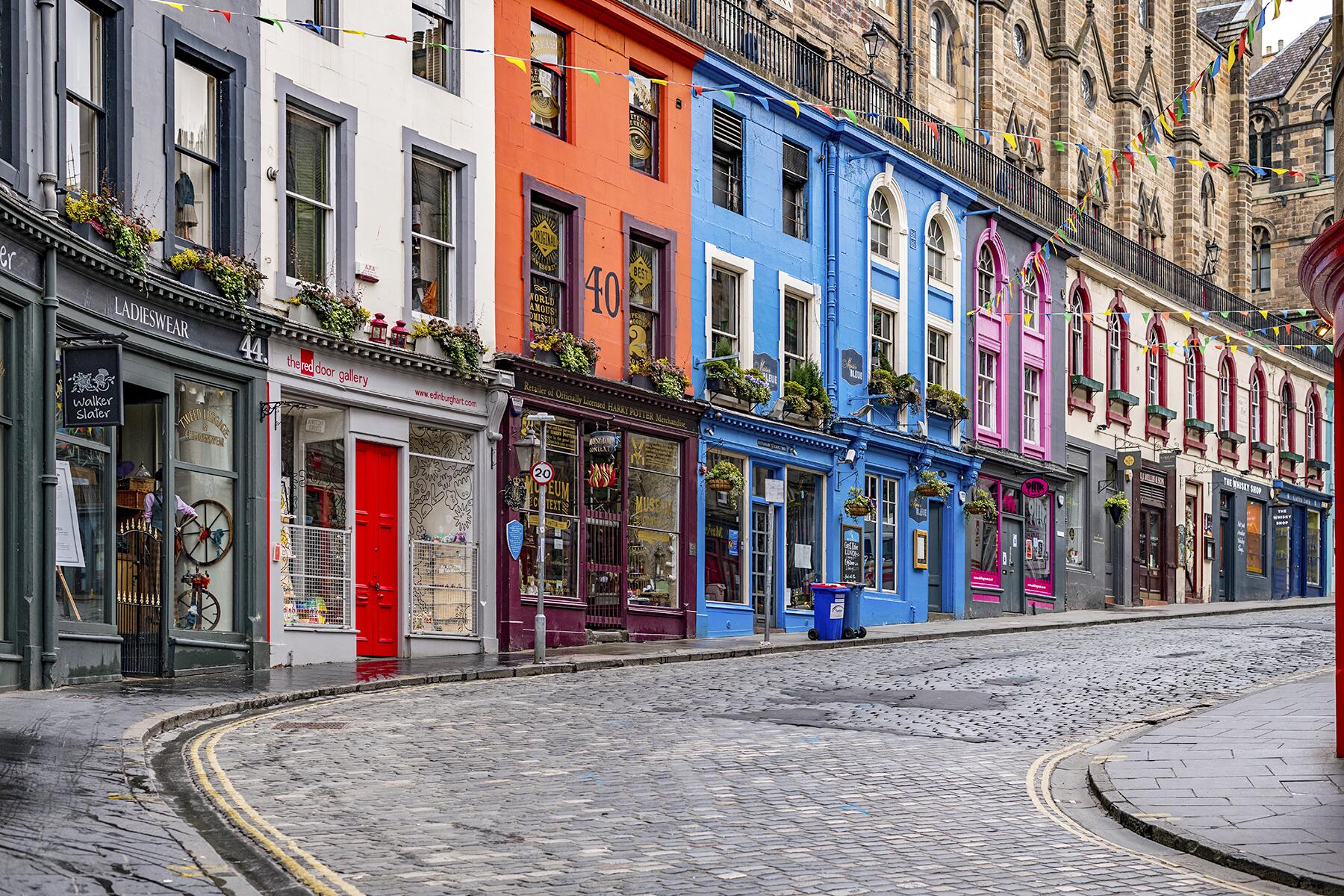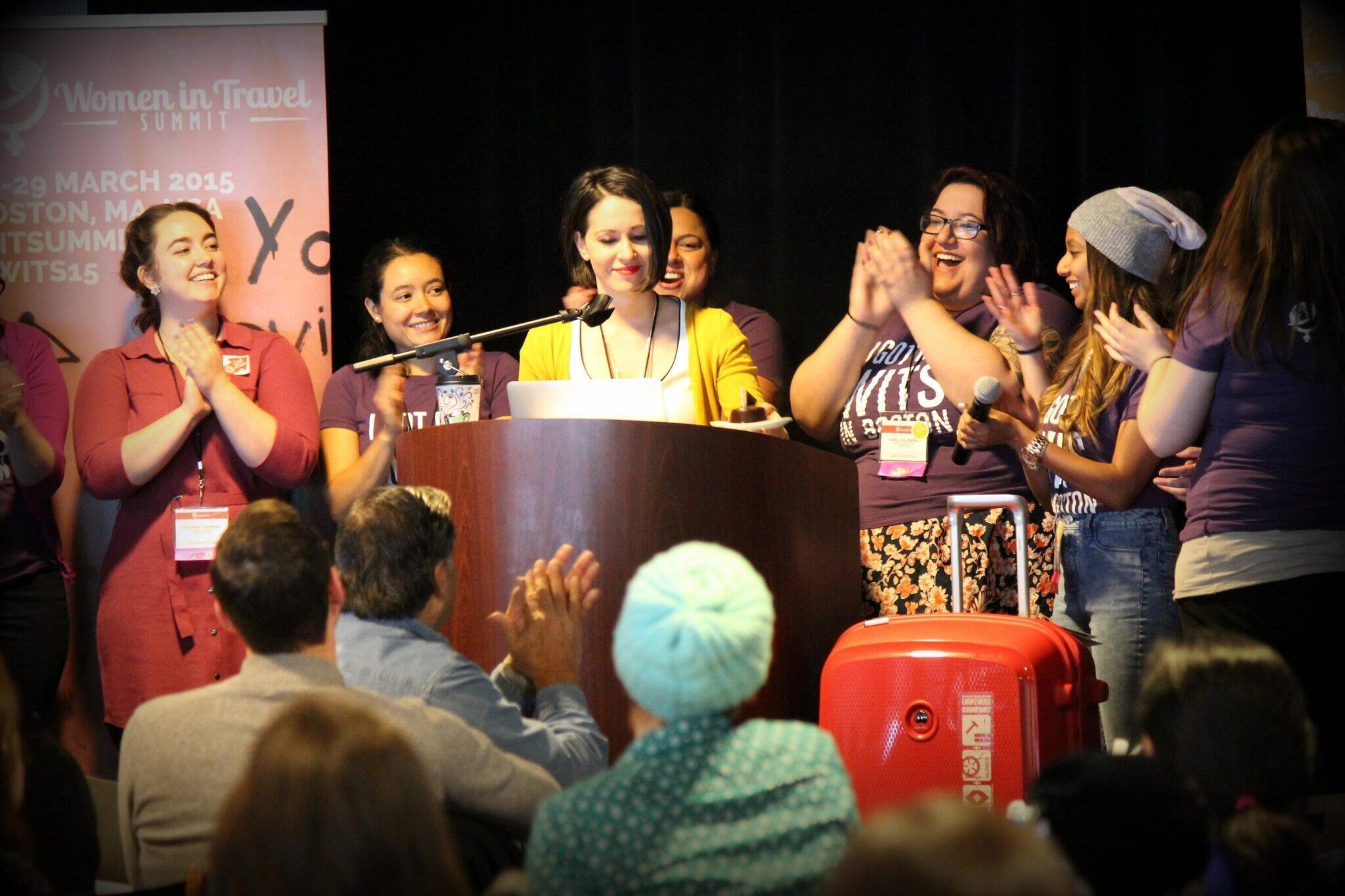This bar is doing much more to support diverse literature than operating a bookshop.
Michelle Vanderwalker’s go-to activity when feeling down or frustrated—and in need of a pick-me-up—has always been reading books.
“Books have really changed my life multiple times,” she says, “both fiction and non-fiction. One of my favorite things is just wandering [a bookstore or library] instead of pulling specific books off the shelves.”
Wanting to spread this love of literature to others at a time when books are being banned, and diverse authors are suppressed, she figured why not turn part of her Durham, North Carolina bar and restaurant, Queeny’s, into a bookshop?
Just past the bar is a cozy little nook functioning as a bookshop, complete with a vintage turning globe, a golden-rod retro couch, and twin chairs covered in needlepoint, and built-in shelves stocked with diverse titles for all ages, curated by Vanderwalker herself. Above the door, a neon sign reads “Rubyfruit.”
“That’s a signal for people who know that book,” she says, referring to Rita Mae Brown’s 1973 Rubyfruit Jungle, a Bantam-published novel portraying lesbianism through the eyes of protagonist Molly Bolt.
Although Queeny’s selection is small compared to a big-box bookstore or even an indie bookshop, it’s highly curated. Vanderwalker has made all the choices for you. “It’s a surprise bookshop,” she says. “You don’t expect to find this in a bar, [and it’s] especially for people who are not in the party scene.”
Recommended Fodor’s Video
To honor her love for wandering in search of a book to read, “I wanted to bring a little of that spontaneous discovery,” she says.
Patrons are free to peruse them—with a cocktail in hand, of course. Titles include Happy to Be Nappy, a 1999 board book for children ages four through eight by bell hooks and Chris Raschka celebrating diversity in children’s hair, or Dave the Potter: Artist, Poet, Slave by Laban Carrick Hill; plus sex-positive titles like It’s Perfectly Normal: Changing Bodies, Growing Up, Sex, and Sexual Health by Robie H. Harris and Women’s Anatomy of Arousal: Secret Maps to Buried Pleasure by Sheri Winston.
For adults, there are plenty of options, including the novel Interior Chinatown by Charles Yu, Beaverland: How One Weird Rodent Made America by Leila Philip, The Underground Railroad by Colson Whitehead, and Why Design Matters: Conversations with the World’s Most Creative People by Debbie Millman. South to America: A Journey Below the Mason-Dixon Line to Understand the Soul of a Nation by Imani Perry is an ode to Durham’s location in the South.
“I really worked to have a diverse range of books by diverse authors,” says Vanderwalker, especially those by BIPOC authors. “I always have a fair amount of books on queer topics, some of which I’m sure are on the banned books list.”

Being home-schooled until high school meant Vanderwalker didn’t have the experience of going to a school library and facing disappointment in a book she sought was banned. But this also puts her squarely into the fight to keep all books accessible. Recent books banned in North Carolina schools include Warriors Don’t Cry: A Searing Memoir of the Battle to Integrate Little Rock’s Central High, an autobiographical work by Melba Pattillo Beals, one of nine Black students in the Arkansas capital who, in 1957, confronted white students, after being threatened and attacked regarding their school’s desegregation. A North Carolina middle-school teacher was prohibited from teaching the book in 2022. Then, that same year, another district was asked to not use Looking for Alaska, a John Green novel-turned-Hulu series, in their classrooms due to some people considering the book to be sexually explicit despite the novel being largely about a male protagonist attending a boarding school and making new friends, including a girl he likes.
“A big part of my education was reading whatever I wanted to read,” she says. “Durham is a liberal bubble, but the state house is a different story. It is important for me to be a little sanctuary space. If you come in and look around you will know I’m not on the book-banning side of things, and we’re a welcoming space. It’s important for me to not be neutral. You can’t be neutral and have everybody feel super comfortable.”
And yet this bar is doing much more to support diverse literature than operating a bookshop. They’re igniting conversations about why closing off access to certain books—decisions made by a select few people—is far from open-minded. In 2022, just a year after its opening, Queeny’s was selected as one of 13 places across the country to host a PEN America discussion on book banning during the organization’s Banned Books Week. For that event, they organized a panel with a children’s-book author, high-school librarian, and journalist to discuss the danger of banning books.
Vanderwalker, who co-owns Queeny’s with Sean Umstead, has made it a mission to carve out the kind of bar and restaurant she would happily spend late nights at. Staff is also carefully and thoughtfully hired to ensure they are in support of the bar’s literary mantras.
Queeny’s hosts two other events on rotation: Queer Book Bingo and Queeny’s Book Club. Recent titles read and discussed by the book club were Small Beauty by Jia Qing Wilson-Yang, about a mixed-race trans woman grieving her cousin’s death who leaves the city to research her family’s history in a small town; The Only Good Indians by Stephen Graham Jones, in which four American Indian men confront a deadly event from their youth; and Popisho by Leone Ross, for its thoughtful portrayal of the author’s Jamaican homeland. Vanderdwalker hopes to add Nightbitch by Rachel Yoder, a debut novel about a stay-at-home mother who puts her art career on pause and one day discovers she’s turning into a dog. “I’ve been wanting to discuss that because I loved it,” says Vanerwalker.
Queeny’s has also morphed into a pop-up venue for visiting authors or as a social extension of literary events. For the next Griot and Grey Owl Black Southern Writer’s Conference, which takes place in Durham this November, a social hour will be at their bar.
“That’s one of the things we are well set up for,” says Vanderwalker. “We’re very book-friendly and writer-friendly.”
Why do I have to read nine paragraphs in before you say that Queeny's is located in Durham?





Where are these booked not allowed to read by adults?